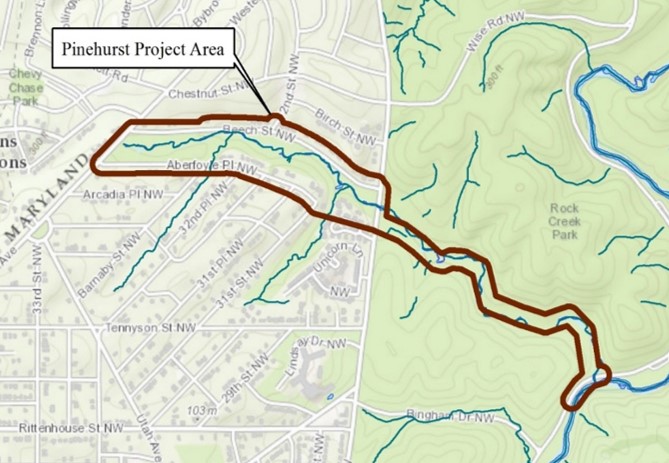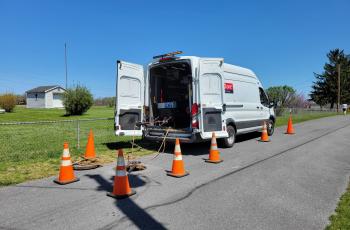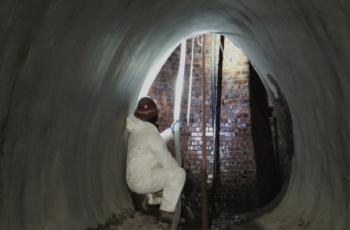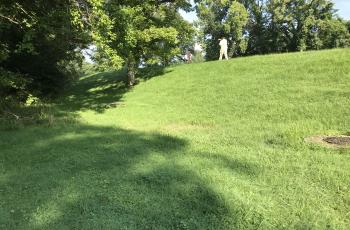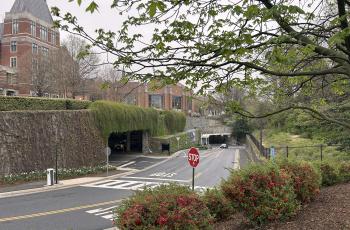Sewer Rehabilitation Project - Pinehurst
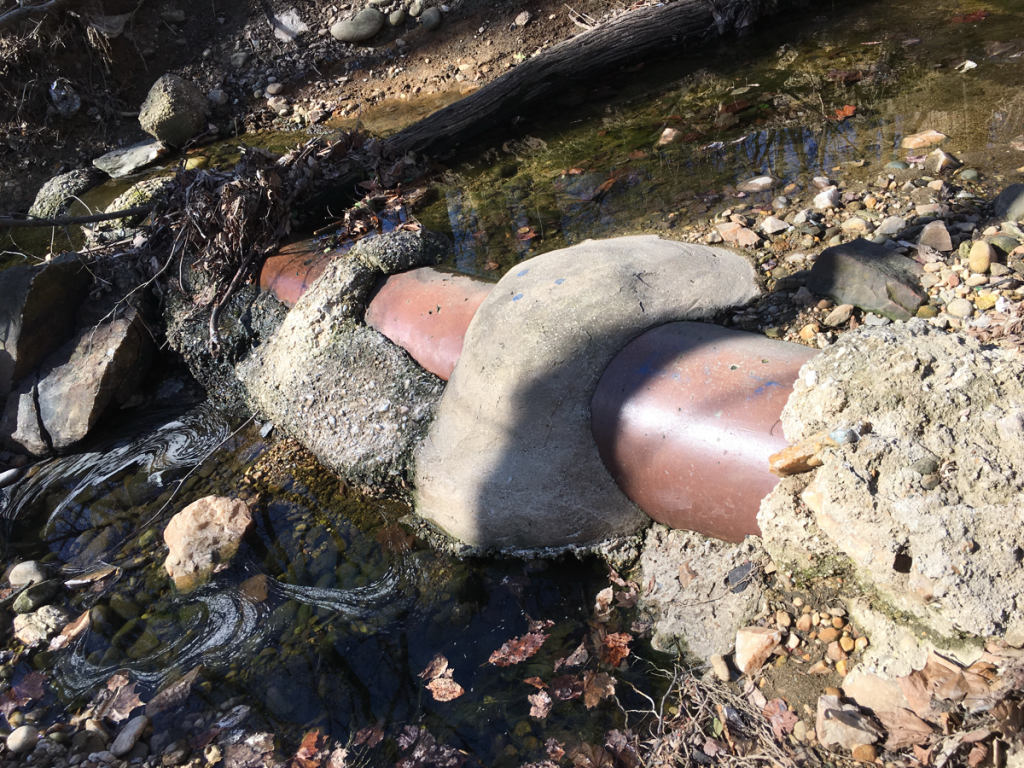
Overview
DC Water is performing sewer rehabilitation projects throughout the city as part of its Capital Improvement Program (CIP). The Pinehurst Branch Sewer Rehabilitation project would involve the rehabilitation and protection of sanitary sewer (approximately 2,000 linear feet) in NW DC. Benefit of this project includes rehabilitating an aging sanitary sewer system, improving structural integrity while maintaining adequate hydraulic capacity, reducing stream and groundwater infiltration, and potential sanitary sewer overflows. This project is essential as storm events continue to deteriorate the compromised sanitary sewer system.
In preparation for this project, thorough evaluations including internal inspections of the pipes and manholes and field investigations were conducted to assess the condition of the sewers and inventory the environmental resources present. The project is located within the Pinehurst Branch stream valley within the National Park Service (NPS) property. Because the project will cause impact on NPS land, DC Water in also coordinating with NPS as the lead federal agency on the preparation of a National Environmental Policy Act (NEPA) document during preliminary design studies. Other agencies may also participate.
Scope of work
- Rehabilitation of approximately 2,000 of affected sewer pipe
- Rehabilitation and/or replacement of 107 manholes
Schedule
- Field Investigation: Completed
- Resource Investigation: ongoing
- Public Review of NEPA Document: To be determine
- Design and Permitting: To be determined
- Construction: To be determined
Important information
Design options are currently being defined, evaluated for avoidance and minimization of environmental impacts, and will be made available during a future 30-day public review period for the NEPA document. Comments during the public review period are encouraged. A confirmed schedule for this review period will be provided in the future at https://www.dcwater.com. Additional public meetings will be held if requested, and a public hearing may be held if environmental consequences are determined to be controversial.
Project location
